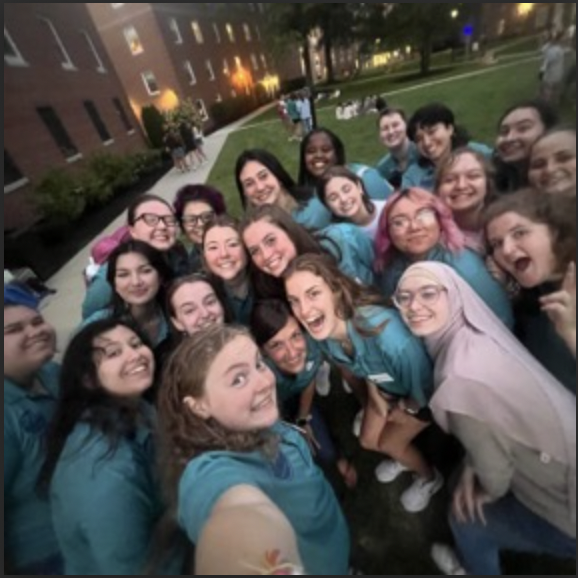By Jessie Kuenzel
Staff Writer
The first day of classes every semester since my arrival at Simmons has found me sitting in my seat during class biting my nails, the raging debate in my head drowning out the monotone voice of the professor reading directly off the syllabus.
Everything always starts off fine, as I follow along through the sections outlining course details and expectations, but inevitably we reach the section about informing instructors about disabilities and registering with the Disability Services office, and the unavoidable panic sets in.
I have ADHD, and I have anxiety—both of which I manage by taking medication. I have never officially registered with Simmons Disability Services, sought out any kind of academic accommodations, or even told my professors other than maybe a comment in passing here or there.
There have definitely been times when my schoolwork has been negatively impacted by one or both of my conditions—I hate calling them disabilities—and it is those times that I remember at the start of every semester. And I can’t help but think to myself: should I say something, or should I just forget about it?
I always wonder how much I would benefit from saying something. On one hand, it makes telling my professor about the panic attack I had last Wednesday night that caused me to hand in my assignment late a little less awkward if he or she already knows I have anxiety, but how much of a stigma is attached once I reveal those bits of information? Would I be better off saying nothing and just taking a few points off my grade?
I am not in a major that lends itself to time-sensitive assignments—I have had probably seven timed tests in my entire career at Simmons, including final exams—which allows me to fly under the radar.
While I struggled every day in high school to finish quizzes in the allotted time—a very visible side effect of my ADHD that my teachers could see firsthand—my struggles are now mostly limited to the library, and my professors could very well go all semester without witnessing anything indicative of a traditionally-defined “disability.”
When I hear stories about how my peers struggle to get professors to acknowledge or provide reasonable accommodations for more serious health or mental conditions, I can’t help but wonder if my mentioning something about my totally-manageable-by-comparison conditions would even be worth it.
Even with the laid-back workload of a Journalism student—mostly take-home tests and long-term projects—I sometimes find myself struggling. Students in more high-pressure programs, or who are equally or more negatively affected by their disabilities, could possibly find their Simmons experience improved by utilizing Disability Services but find themselves deterred by the stigma associated with speaking with Disability Services and professors about accommodations.
There is an unspoken pressure to succeed academically without help. If contacting Disability Services and recieving accomodations wasn’t as difficult or stigmatized, more students would feel able and willing to register. This would allow the quality of academic life for Simmons students like myself and undoubtedly many more to improve immensely.












